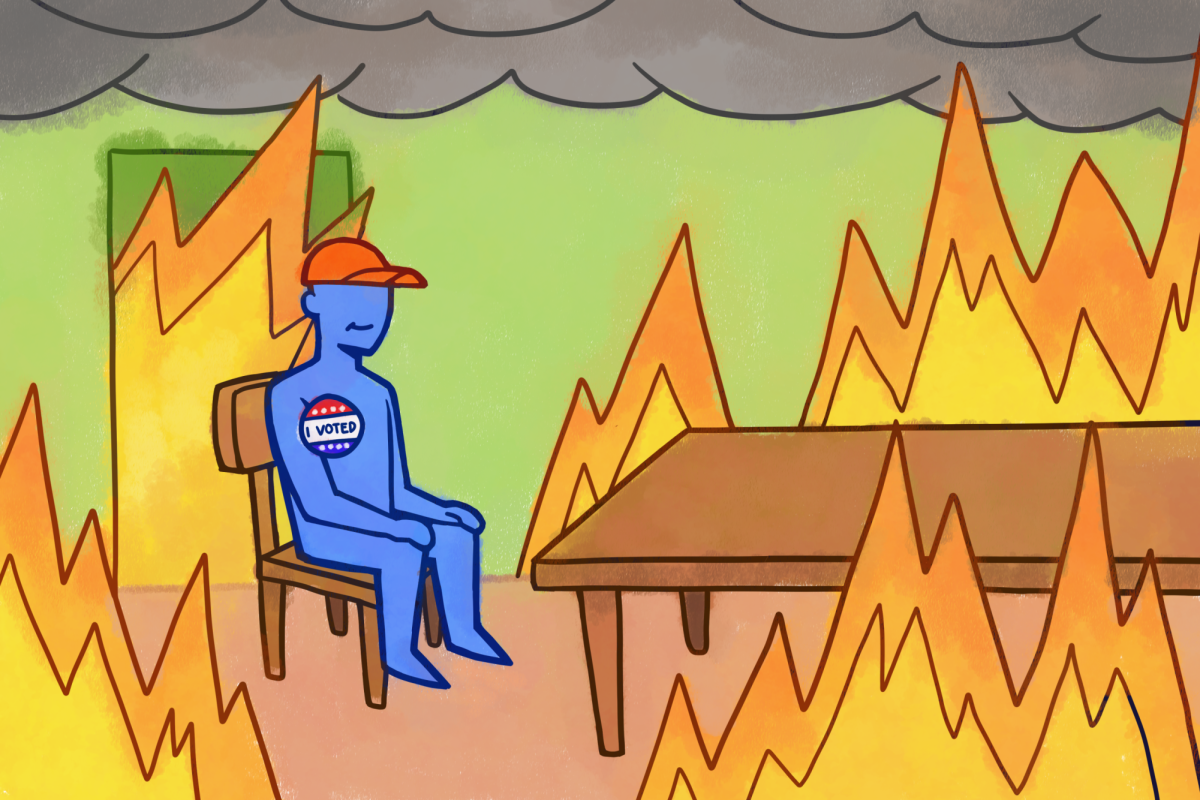The image of President Barack Obama striding along a red carpet toward a camera sticks in most minds as the prelude to his announcement of the killing of Osama bin Laden. However, when he took to the same podium Monday night, he communicated not a sense of national triumph, but trepidation at what has become a crisis of ideology pitted against national interest.
“The debate right now isn’t about whether we need to make tough choices … the debate is how it should be done,” Obama said, underscoring what perhaps is the most frustrating aspect of the debt ceiling crisis for citizens to understand: We know the debt ceiling must be raised to stave off catastrophe, but the matters of the mechanism, partisan divide and long term debt concerns have seemingly blocked any action.
Over the past few months, legislators in Washington have wrestled with Obama’s aforementioned “how” of the debt ceiling crisis, and various plans from politicians and party leaders have been floated, sunk, resurrected, denounced and so on.
But time is growing short. While members of both parties have engaged in public spats, the specter of the Aug. 2 deadline looms. If the debt ceiling is not raised by then, this country faces downgraded credit rating, rising interest, and the possibility that the U.S. government would be forced to default on some of its obligations. The debt ceiling has been raised 102 times since 1917 (usually without great controversy) but, as Obama said, the current situation is grounded in something other than a will-we-or-won’t-we decision to raise the debt ceiling: this issue has become a line in the sand for ideologues, rather than a measured policy decision for legislators.
One Democrat plan, outlined by Harry Reid, D-Nevada, would raise the debt limit by $2.4 trillion, enough to fund the government though the next election. Reid’s plan would cut roughly $2.7 trillion in the next decade without new taxes, a major concession to Republicans who have strongly resisted raising revenues through new taxes. However, this plan makes no changes to entitlement programs such as Medicare, Medicaid and Social Security and does not enact long-term change to the way Congress spends.
Get The Daily Illini in your inbox!
Speaker of the House John Boehner’s idea, revealed Monday, calls for a two-step plan to raise the debt ceiling, the first of which would raise the debt ceiling by $1 trillion in exchange for $1.2 trillion in spending cuts, and would conditionally tie a second debt ceiling increase next year to further spending cuts (around $1.8 trillion in the next decade) managed by a new joint committee in Congress. Additionally, Boehner wants to “cap” future spending that if exceeded would result in automatic and broad cuts. However, this means the issue will resurface in a matter of months, (and more importantly, during the election), which could result in another Congressional deadlock.
Both parties can be said to be at fault, and currently the Democrat-controlled Senate will probably sink Boehner’s plan while the Republican-controlled House will assuredly reject Reid’s. However, Democrats have demonstrated the ability to compromise, while Republicans have embraced shocking levels of political gamesmanship in using this crisis to take an ideological stand against Obama.
Granted, the Republican party now has a vocal contingent of Tea Party members in Congress who have demonstrated a willingness to mount their ideological horses. But take Senate Minority Leader Mitch McConnell, who suggested a plan that would allow a short-term debt ceiling increase while Republicans adopt a “resolution of disapproval,” which could then be vetoed by the president. Such complicated maneuvering would have essentially allowed Republicans to “wipe their fingerprints” from any raise in the debt ceiling and retain the ability to criticize Obama further — always a politically advantageous action.
As convoluted and cynical as McConnell’s plan would have been, his admission in October that “The single most important thing we want to achieve is for President Obama to be a one-term president … that’s my most important political goal,” can shed light on the GOP’s sometimes astoundingly contrarian outlook.
Elected officials in both parties should realize “political goals” cannot determine the economic future of our country, and the single most important thing for Republicans and Democrats to achieve right now is a measured raise in the debt ceiling, for the good of those who elected them. It is no politician’s “job” to prevent Obama’s re-election, that is for the citizens to decide. For that matter, it is also not Obama’s “job” to get re-elected.
Statements such as McConnell’s point to a mindset of cynicism and disregard for the needs of the public, one that places politicians’ doctrine before duty to their constituents. This mindset must end, and soon.








